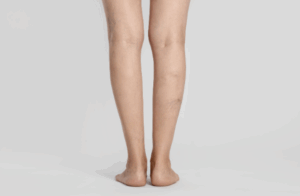
Our bodies are made up of a complex network of blood vessels that keep every organ and tissue alive and functioning. At the heart of this network are veins, the unsung heroes responsible for carrying blood back to the heart. When veins function properly, we don’t even think about them. But when they don’t, the signs—aching legs, swelling, bulging varicose veins—can be impossible to ignore.
At the Vein Institute of Pittsburgh, we believe that understanding the anatomy and function of veins can empower you to recognize when something is wrong and seek treatment before problems worsen.
The Role of Veins in Circulation
The circulatory system consists of two main types of blood vessels: arteries and veins.
- Arteries carry oxygen-rich blood away from the heart to nourish the body.
- Veins return oxygen-depleted blood back to the heart to be reoxygenated.
Unlike arteries, veins rely on a series of one-way valves and muscle contractions to push blood upward—often against gravity—from the legs and lower body. These valves act like gates, opening to allow blood to flow upward and closing to prevent it from flowing backward.
Types of Veins
There are three main types of veins:
- Deep veins – Located deep within the muscles and responsible for the majority of blood transport to the heart.
- Superficial veins – Found closer to the surface of the skin, these are often where varicose veins develop.
- Perforator veins – These connect the deep and superficial veins and help regulate pressure by directing blood from the superficial system to the deep system.
All of these veins work together to maintain healthy blood flow and prevent blood from pooling in the legs.
What Happens When Veins Malfunction?
When the valves inside your veins weaken or become damaged, blood can leak backward and pool in the lower legs. This condition is called chronic venous insufficiency (CVI). Over time, it can lead to uncomfortable and unsightly symptoms, including:
- Swelling (edema)
- Aching or heavy legs
- Skin changes or discoloration
- Itching or burning sensations
- Varicose or spider veins
- Leg cramps or restlessness, especially at night
- Non-healing wounds or venous ulcers
These symptoms are more than just a nuisance—they’re signals that your circulatory system is under stress.
What Causes Vein Problems?
There are several contributing factors to venous insufficiency and valve failure, including:
- Age: As we age, our vein walls and valves naturally weaken.
- Genetics: A family history of vein disease increases your risk.
- Gender: Women are more likely to develop vein issues, particularly due to hormonal changes.
- Pregnancy: The increased blood volume and pressure during pregnancy can strain leg veins.
- Prolonged standing or sitting: Lack of movement reduces circulation and valve efficiency.
- Obesity: Excess weight places more pressure on leg veins.
- Smoking: Damages blood vessels and reduces circulation.
When to See a Vein Specialist
If you’ve noticed leg swelling, aching, visible veins, or skin changes, it’s time to see a vein specialist. These symptoms may seem minor at first, but they often progress if left untreated. At the Vein Institute of Pittsburgh, we offer advanced diagnostic tools such as ultrasound to assess how well your veins are functioning and to detect underlying problems.
Treating Vein Disease
The good news is that vein disease is very treatable, especially when caught early. Treatment options range from conservative approaches like compression therapy and lifestyle changes to minimally invasive procedures such as:
- Endovenous Laser Ablation (EVLA): Uses laser energy to seal off damaged veins.
- Radiofrequency Ablation (RFA): Similar to EVLA but uses radiofrequency energy.
- Sclerotherapy: Involves injecting a solution into spider or small varicose veins to close them.
- Ambulatory Phlebectomy: A minimally invasive procedure to remove bulging varicose veins.
These treatments are often performed in-office with little to no downtime, allowing you to return to your normal activities quickly.
Healthy Veins, Healthy Life
Your veins play a vital role in keeping your body healthy and energized. When they start to fail, your body sends signals—it’s up to you to listen. Don’t wait until symptoms become severe. The earlier you address vein issues, the easier they are to treat.
At the Vein Institute of Pittsburgh, we specialize in diagnosing and treating all forms of venous disease with compassion, expertise, and cutting-edge technology. Whether you’re dealing with cosmetic concerns or serious circulatory issues, we’re here to help you get back on your feet—comfortably and confidently.
